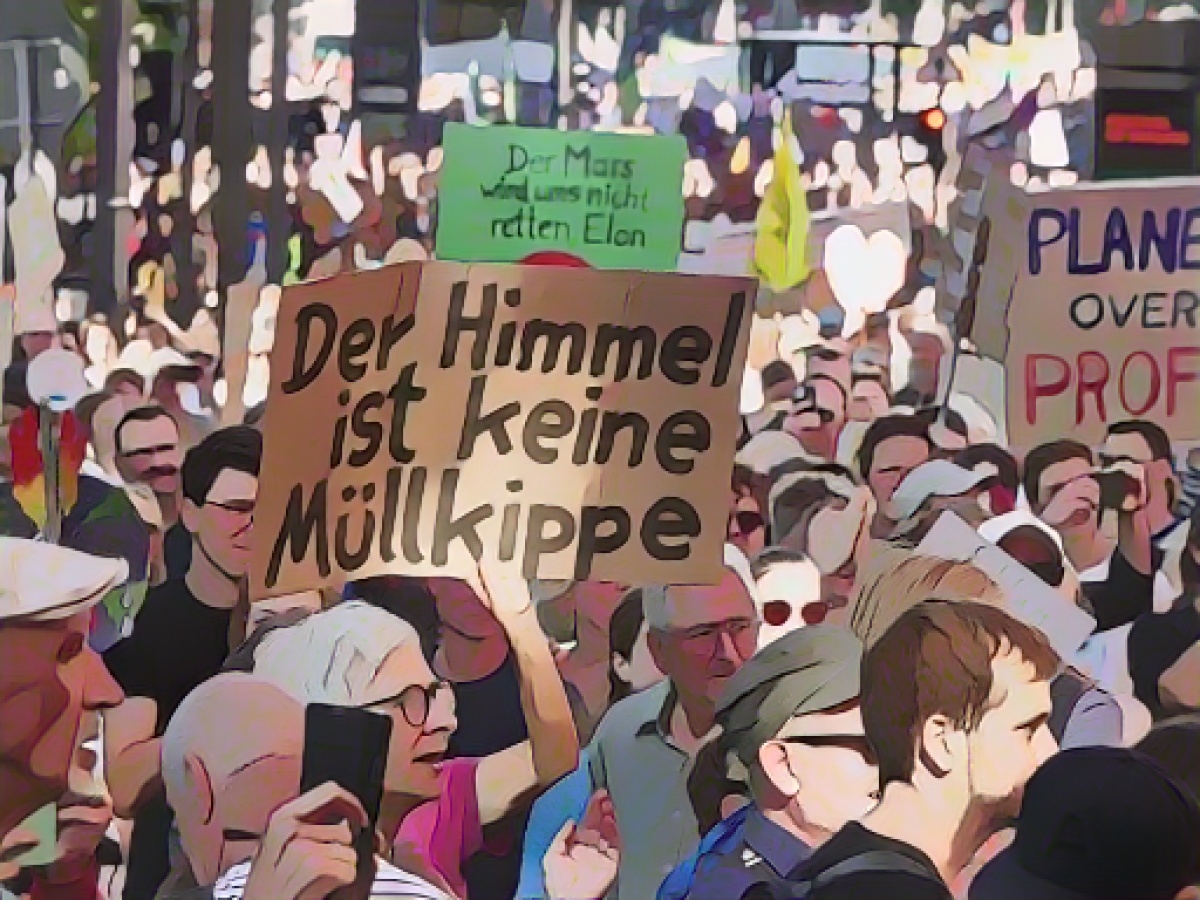Fridays for Future announces popular initiative
With a popular initiative, Fridays for Future (FFF) Hamburg wants to ensure stronger, more binding and socially acceptable climate protection efforts in the Hanseatic city. The plan is to make Hamburg a climate-neutral city by 2040. FFF spokesperson Lou Töllner told the German press agency Deutsche Presse-Agentur that there should be annual CO2 emission ceilings for the transport, industry, private households and trade/commerce/services sectors. The popular initiative is to be launched in January.
The amendment to the Hamburg Climate Protection Act planned by the red-green Senate would not meet the requirements, said Töllner. Together with an alliance of environmental associations and trade unions, the environmental activists will therefore be collecting signatures for the "Volksinitiative Zukunftsentscheid" (People's Initiative for a Decision on the Future) from January. In doing so, they want to commit the Senate to socially just, science-based and economically balanced climate protection and give Hamburg's climate policy a reliable framework.
In contrast, the red-green Senate only wants to bring forward the achievement of a climate-neutral city from the originally planned year 2050 to 2045 in its amendment to the law and reduce CO2 emissions by 70 percent by 2030 compared to 1990 levels - but without binding annual interim steps. The popular initiative is also sticking to the 70 percent interim target by 2030.
"Many people are worried about rising rents and prices, the escalating climate crisis and the future of our city," said Töllner. "Meanwhile, the Senate is also failing to create a reliable framework and mobilize broad social support with the announced amendment to the Climate Protection Act."
The authorities responsible for the respective sectors should be responsible for adhering to the annual CO2 budgets. "If, from the year in which the law comes into force, emissions in a sector exceed or fall below the respective permitted annual emission volume, the difference will be evenly offset against the remaining annual emission volumes of the sector for the next five years up to a maximum of 2040," states the legal text of the initiative, which is available to dpa.
Revising the Climate Protection Act every few years and only implementing individual measures is not enough, said Töllner. "That's why we have spoken to stakeholders from climate science, social organizations and, in particular, the business community."
According to Fridays for Future, it receives support from the Hamburg Association for the Environment and Nature Conservation (BUND) and from trade unions. The regional head of Verdi Hamburg, Sandra Goldschmidt, said: "We support the demand for concrete savings plans for the individual sectors and the legal obligation for measures to be socially acceptable."
CO2 emissions continue unabated, especially in the transport sector. "We urgently need this framework, which requires concrete measures such as targeted investment in the expansion of local public transport," she said.
The popular initiative led by Fridays for Future (FFF) Hamburg aims to incorporate annual CO2 emission ceilings into the city's environmental policy, covering sectors such as transport, industry, private households, and trade/commerce/services. This initiative seeks to establish a more robust and socially acceptable climate protection policy, aiming to make Hamburg climate-neutral by 2040.
Despite the red-green Senate's amendment to the Hamburg Climate Protection Act, which aims to achieve climate neutrality by 2045 and reduce CO2 emissions by 70% by 2030, Fridays for Future and their alliance believe that stronger measures are necessary to address the escalating climate crisis with annual binding interim steps.
Source: www.dpa.com








